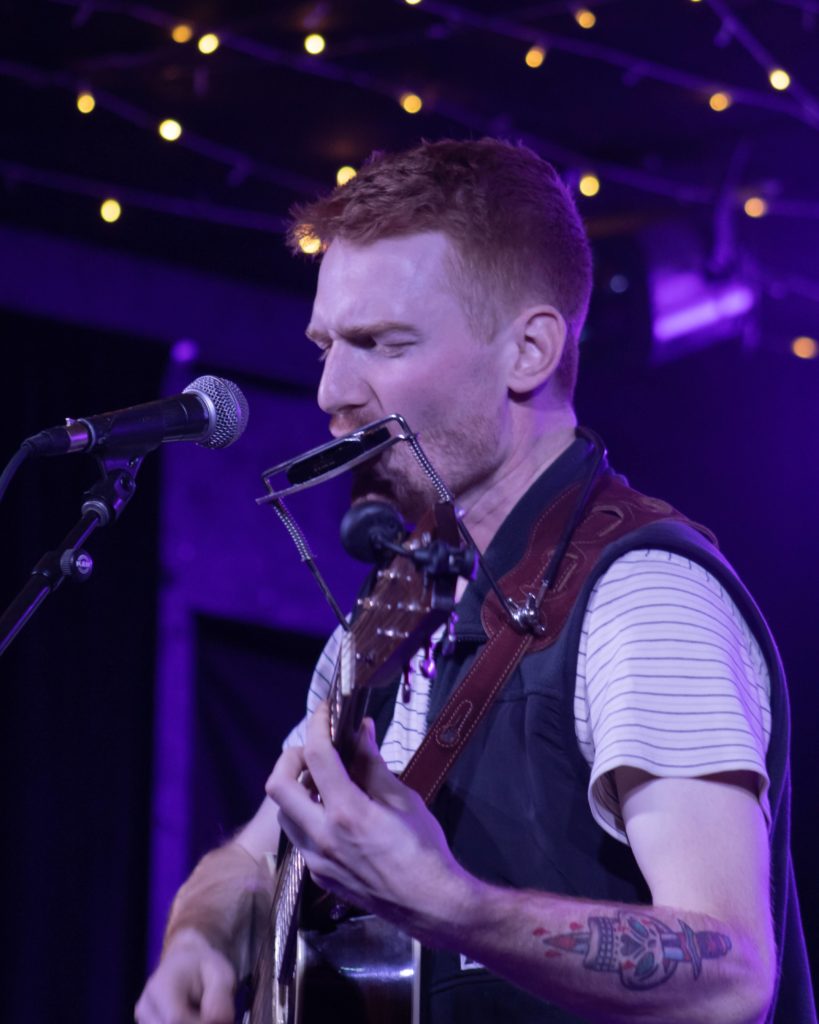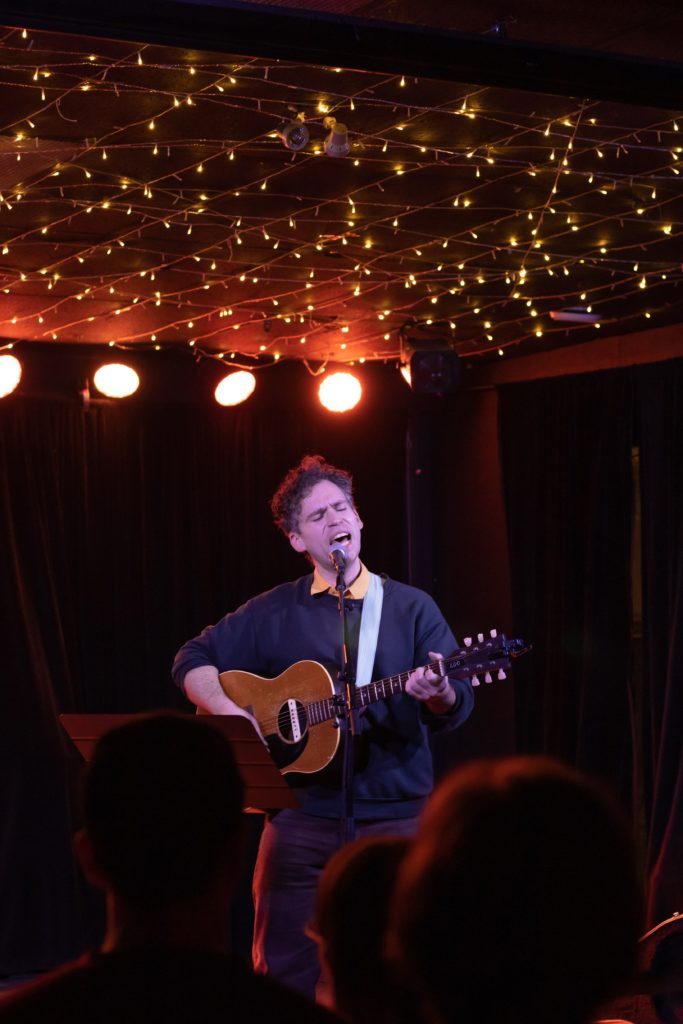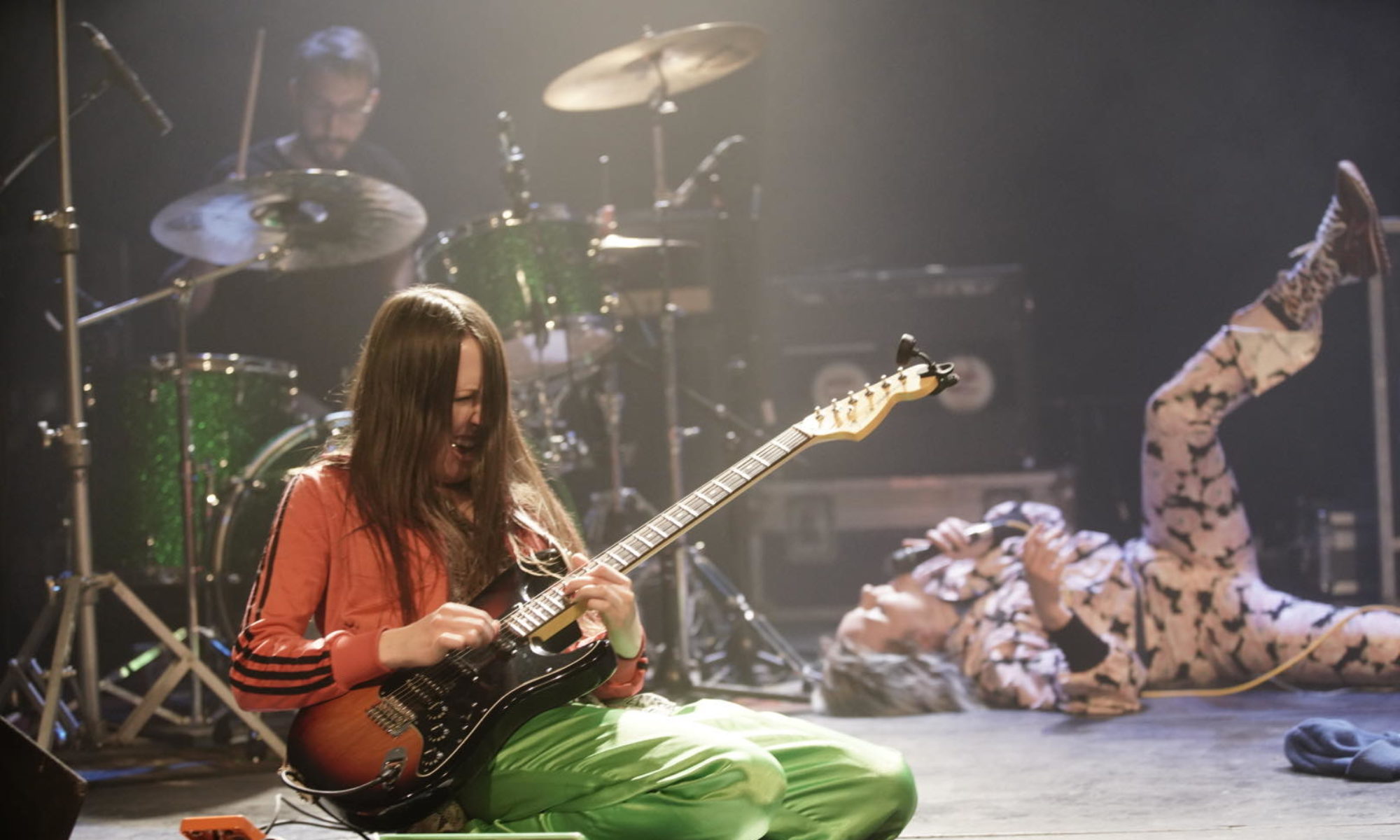
by Myles Tiessen
Two shows took place at The Good Will Social Club on January 27th for WINTERRUPTION. Five bands entertained a crowd of hyperactive fans from 7 pm until well past midnight, making for a jam-packed evening of rock n’ roll music. This is coverage of the early show, featuring meditative performances from Stephan Hodges and A. Savage.
EARLY SHOW
Stephan Hodges
Stephan Hodges walked onto the stage alone at the Good Will shortly after 7:30 pm. Though he was the first performer in what was to be a very long night of music, his set undoubtedly rings clear in attendees’ ears.
While admittedly nervous, he and his acoustic guitar stood proud at the stage’s centre and, one by one, picked away at some songs from the Animal Teeth catalog (of which Hodges is the principal songwriter and singer). His stunning guitar skills captivated a surprisingly large crowd for such an early show.
What stood out the most was just how surprising the songs, through the channel of the solo acoustic guitar, separated themselves from their existence with the band. The slowcore or sad, lofi tunes transitioned into folky love songs that carried new weight and solemnity.
Songs like “New Fast” or “Heart of Darkness” were melancholic, contemplative, and authentic, showcasing Hodges’ diary-like songwriting. It’s been a while since we’ve gotten any new Animal Teeth material, so it’s nice to see Hodges still honing his craft.
A. Savage

It goes without saying — Andrew Savage is an enigmatic figure. The brain behind alternative legends Parquet Courts is continually morphing and pursuing new creative directions, whether it be visual art or genre-bending music like Parquet Courts’ hugely popular Wide Awake!, which was highly indebted to Analog Africa’s African Scream Contest series.
One could go on for ages describing all the esoteric inspirations behind the creative directions Savage has taken in his career, but regardless, he left all that behind when he took the stage in front of a packed crowd.
Stone-like with only an acoustic guitar, a music stand full of lyrics, and an empty guitar case by his side, Savage resembled an unassuming busker. Still, he awed a crowd of eager fans with his profoundly astonishing lyrics and arresting melodies.
Savage worked his way through primarily new material. One of those new songs he called “Elvis in the Army,” a lyrically dense track about performance, failure, and the prospect of becoming obsolete in the music industry. Savage’s baritone vocals lifted and lowered, cracked and soothed through what was, in all reality, an all-too-short set. Like Jim Sullivan and Fred Neil, Savage’s folk-country demeanor was mysterious and enrapturing. Whether hypnotized by his skillful finger-picking or left analyzing the pieces of his gothic lyrics, it was a set for the ages.

